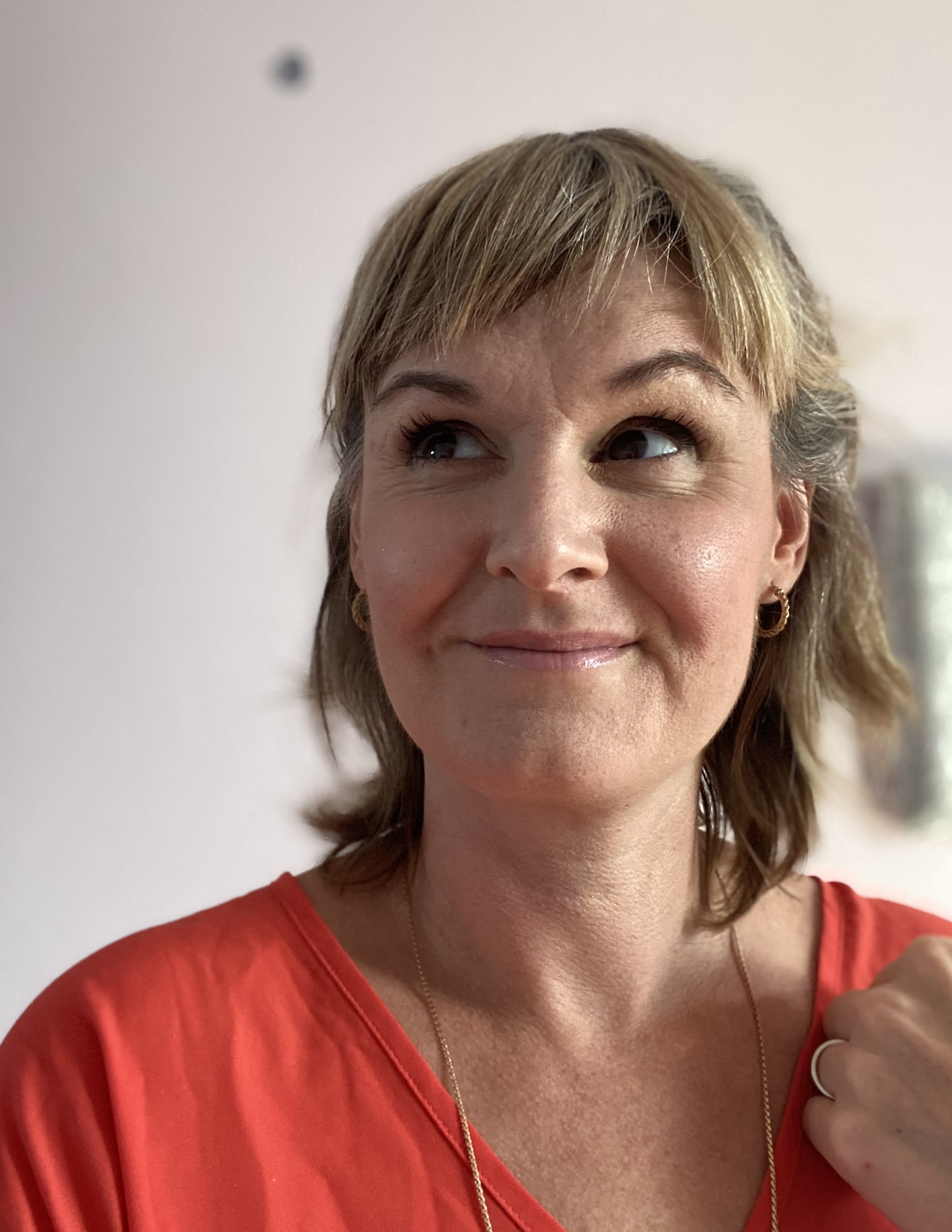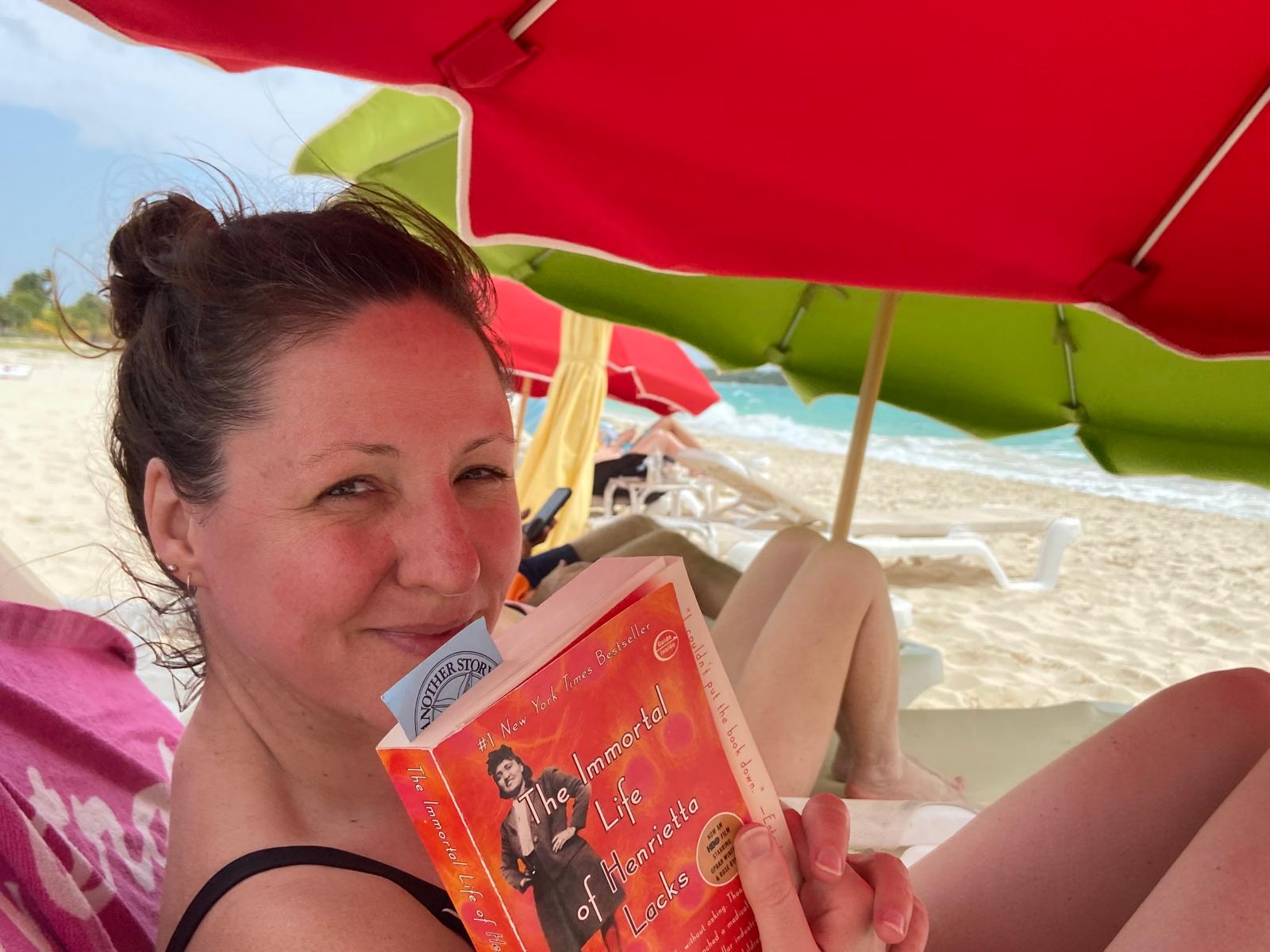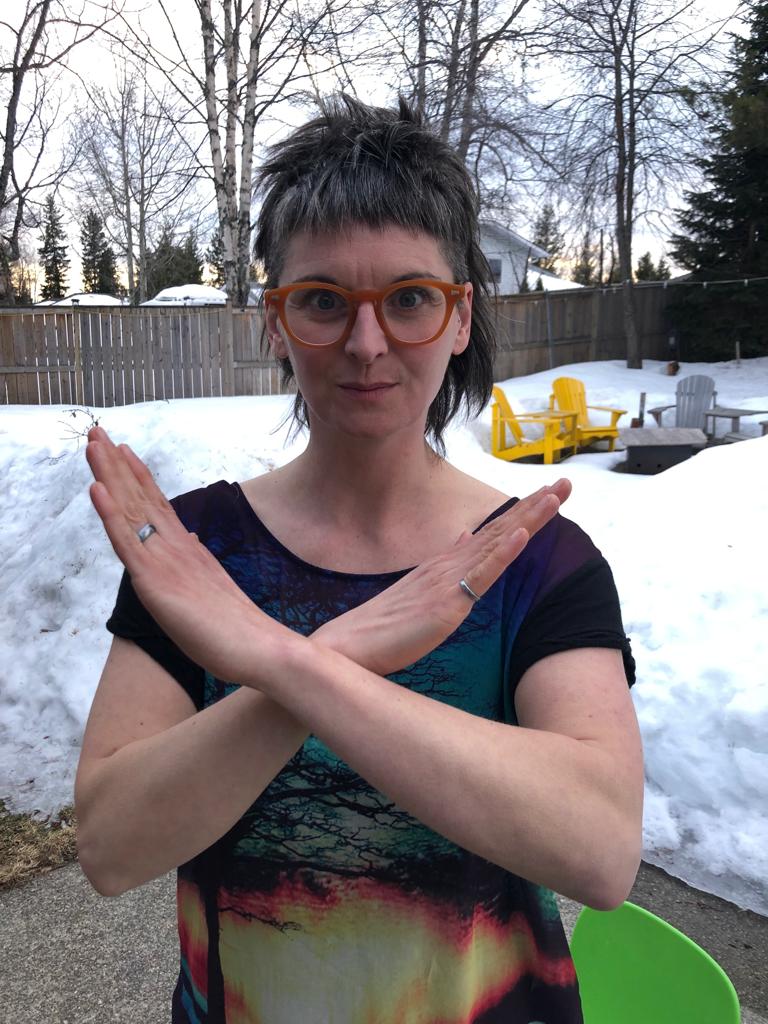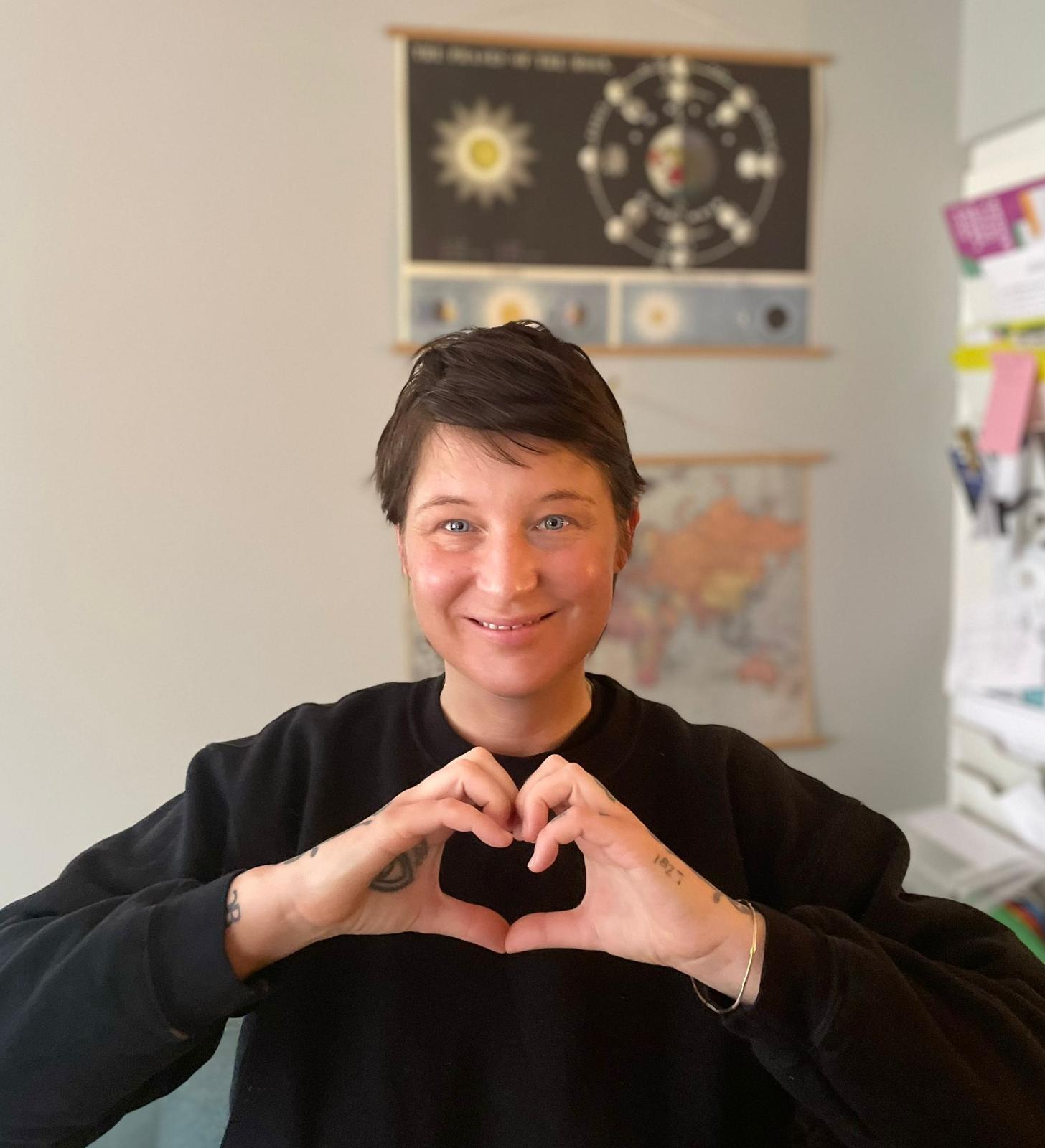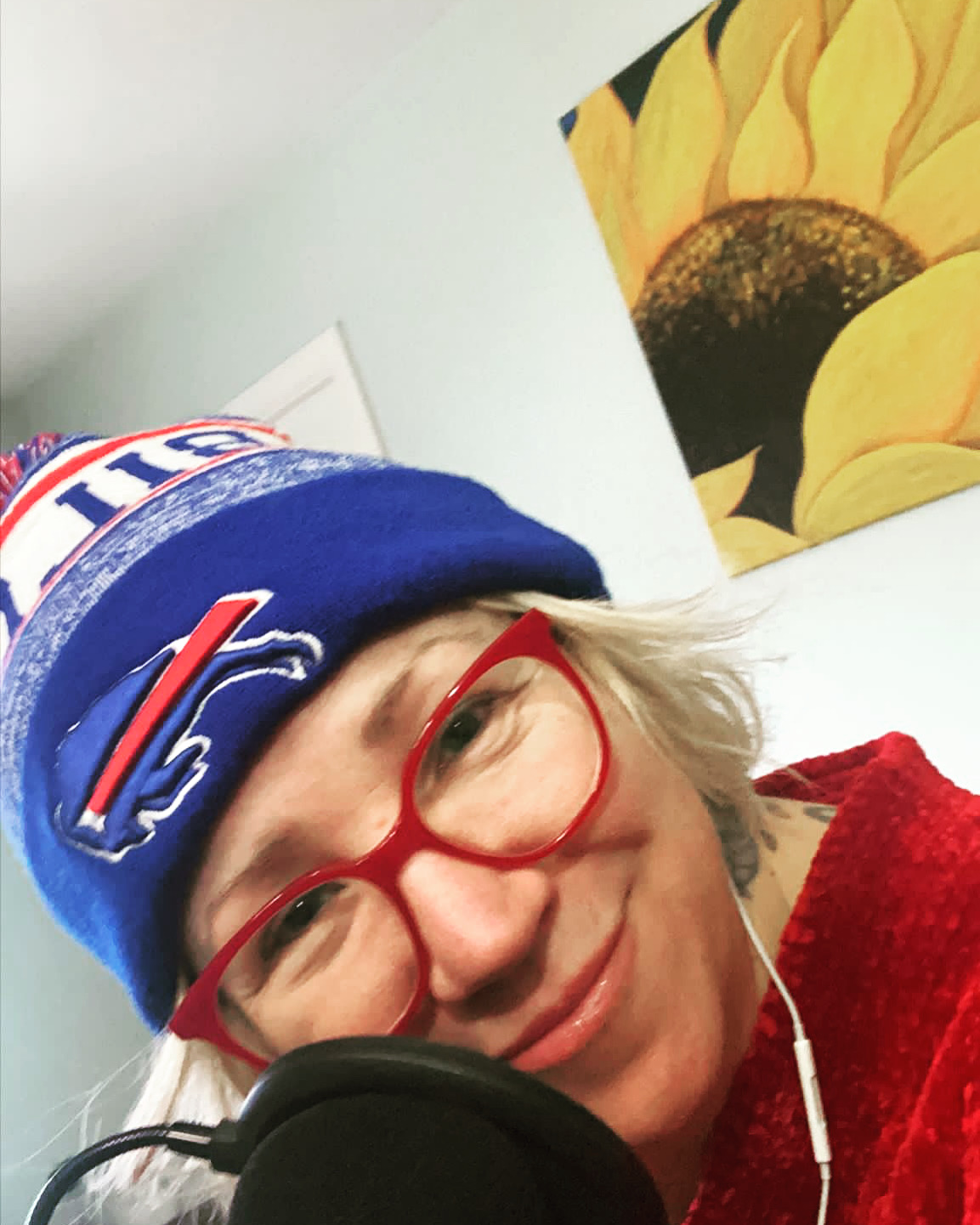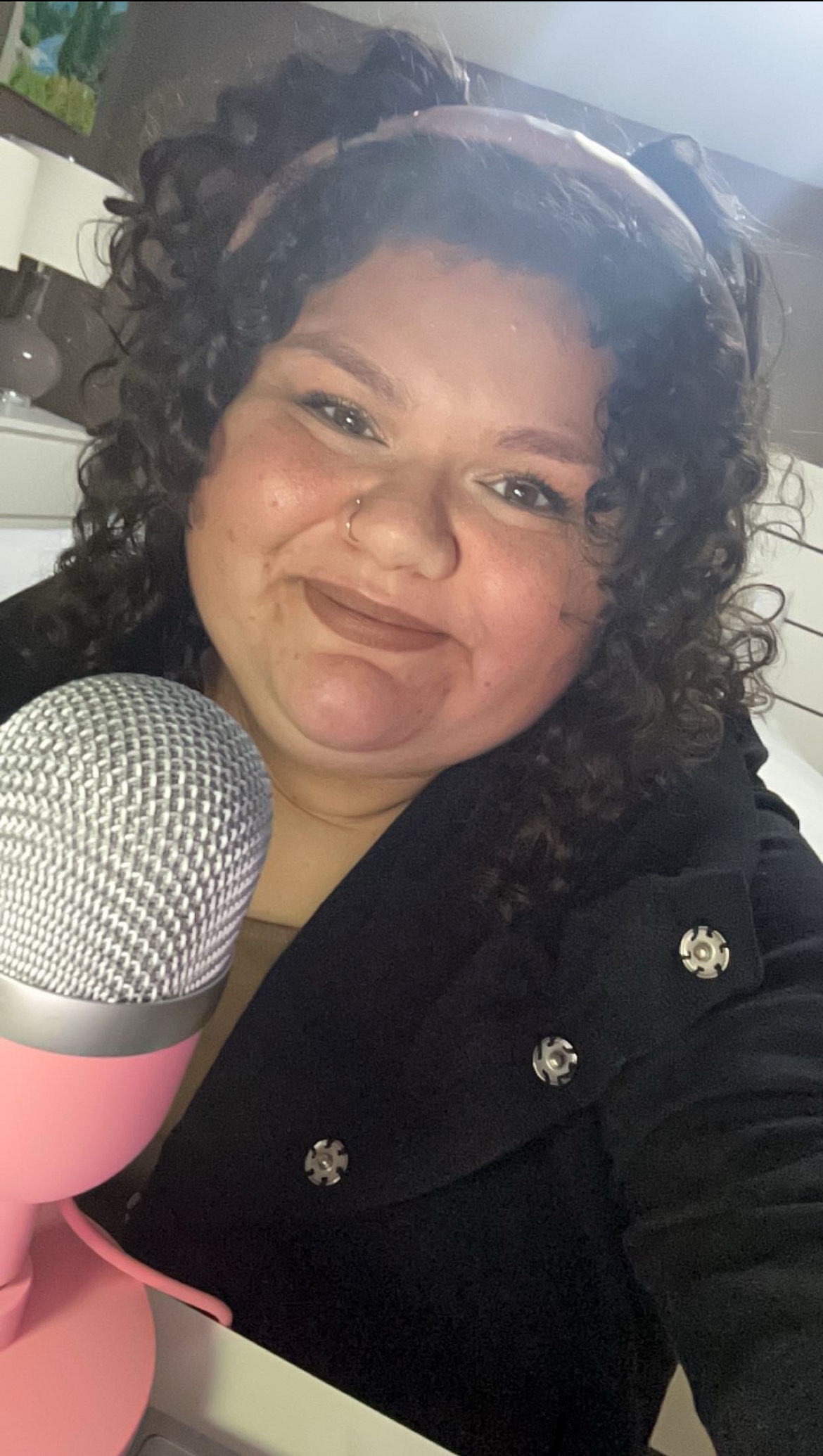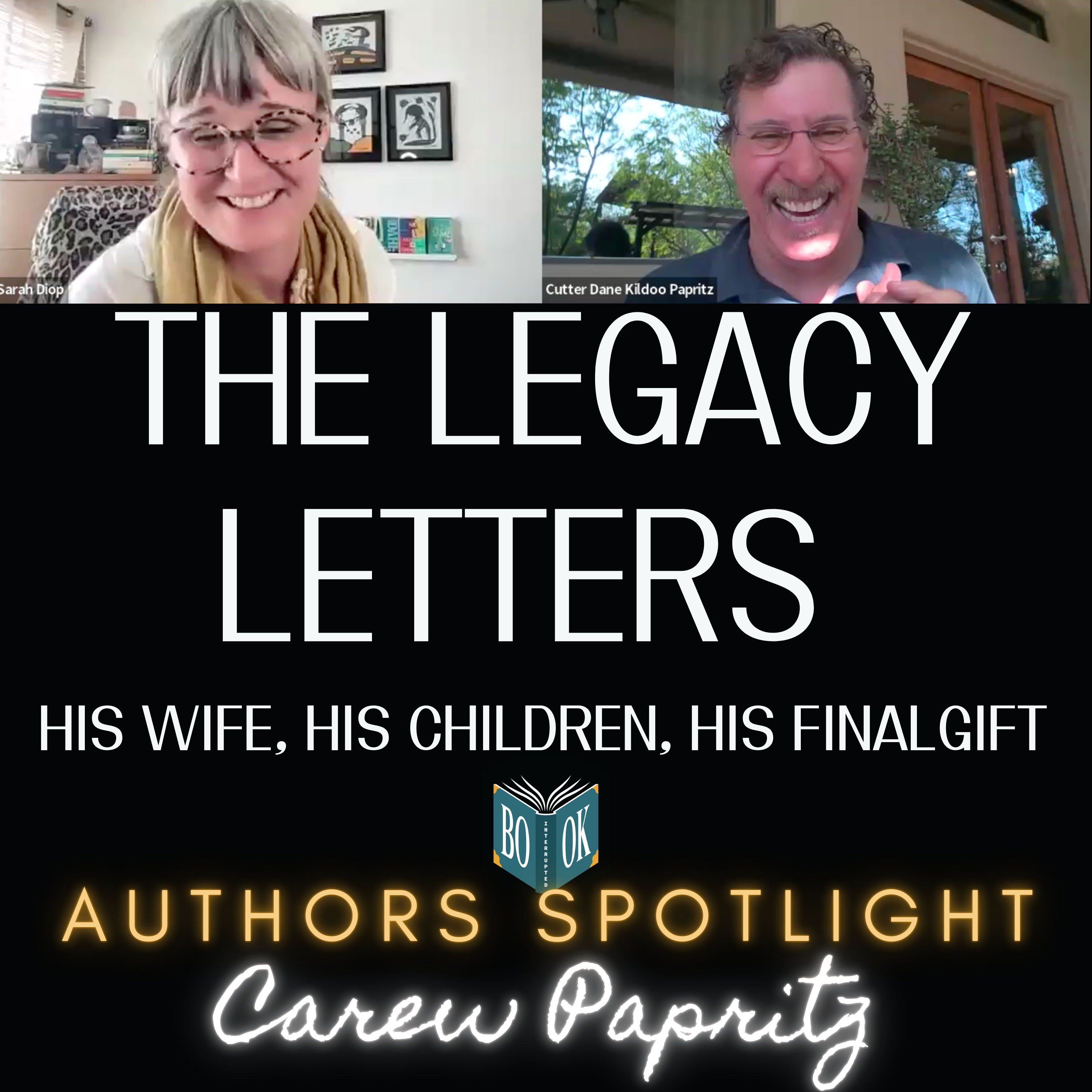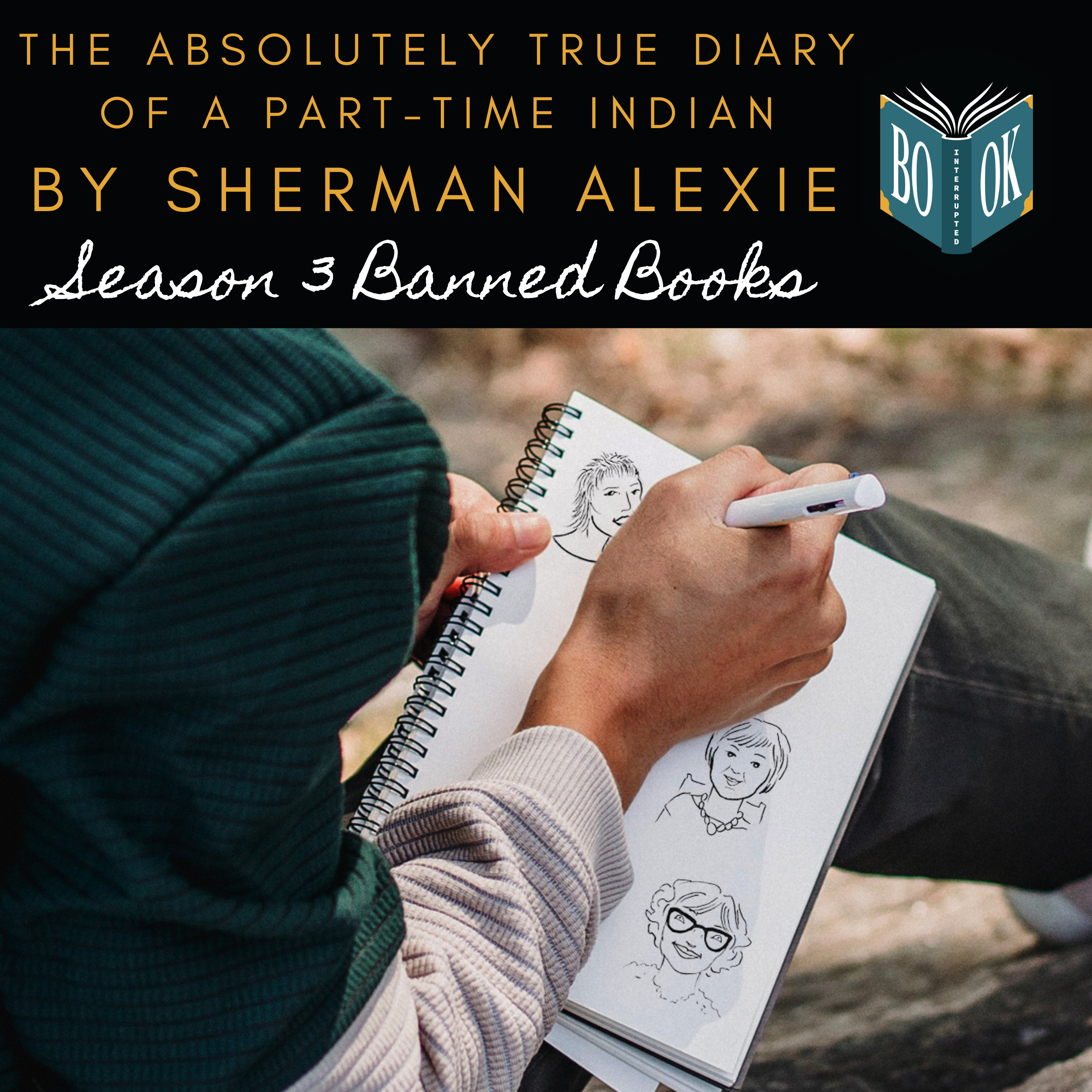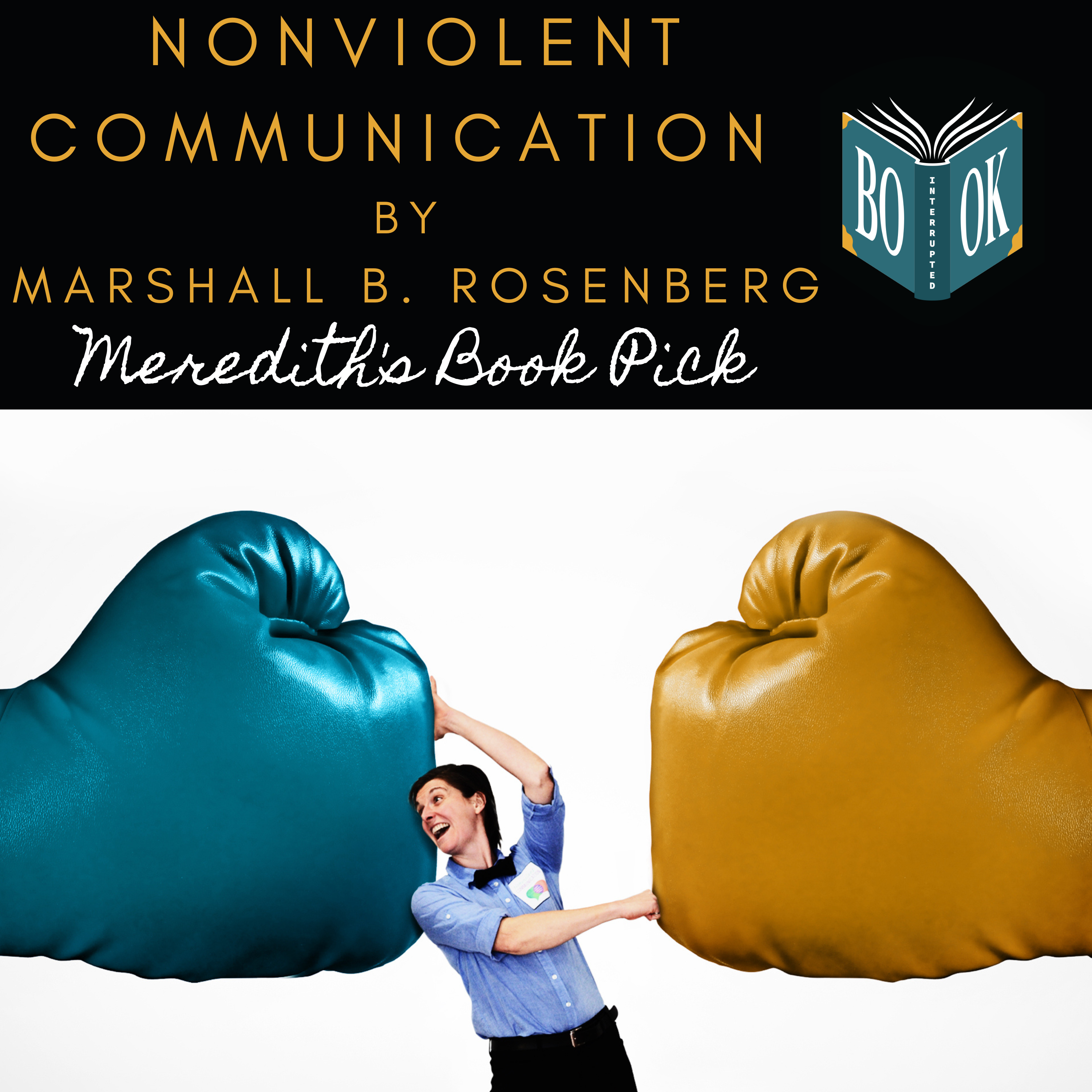[00:00:00] Speaker A: Would you like to attach a face to that voice? When you subscribe to the Book Interrupted YouTube channel, you get to see everybody as well as check out a bunch of extra Book Interrupted videos and music content. Visit the book interrupted YouTube channel to see what you've been missing.
[00:00:15] Speaker B: Parental guidance is recommended because this episode has mature topics and strong language.
Here are some moments you can look forward to during this episode of Book Interrupted.
[00:00:26] Speaker C: Why you should read the legacy letters and not just because it's won a bunch of national awards. That's not a reason to read.
[00:00:34] Speaker D: Oh, I love it. That's true though. Traveling really does change you.
[00:00:39] Speaker C: Yeah, I had sort of an early midlife crisis and I say that because it's best to have them early.
[00:00:45] Speaker D: There is a book talk trend of people doing that to get really.
[00:00:49] Speaker C: I was working in the feature film industry in Hollywood.
[00:00:52] Speaker D: You probably won a non fiction award is probably because it sells self help or spiritual.
[00:00:57] Speaker C: Are you the guy that's dying in the book? And I go, no.
[00:01:07] Speaker E: To read a book is the goal.
I want to learn something new.
I don't want to be disrupted.
Mind, body and soul.
Inspiration is the goal.
And we're gonna tongue it out on book. On book Interrupted.
[00:01:37] Speaker B: Welcome to the author's spotlight. During these mini episodes, we have authors come on and tell us about their books and why we should read them. Let's listen.
[00:01:46] Speaker D: Welcome to the author spotlight. On this episode, we're interviewing Karoo Papritz with his book the legacy. His wife, his. His final gift. Thank you for being on the show.
[00:01:59] Speaker C: Yeah, it's great to be on the show. Thank you.
[00:02:00] Speaker D: Yeah. So let us know why we should.
[00:02:04] Speaker C: Read your book, why you should read the legacy letters and not just because it's won a bunch of national awards. That's not a reason to read. Not because it looks very beautiful. Okay, there it is.
[00:02:18] Speaker D: Very nice.
[00:02:18] Speaker C: And I got awards for design and book. Oh, it goes. No, don't read it for that. Read it because I'm going to tell you a little story. So I'm at a book signing, the Barnes and Noble. And I love to do book signings. It's just a place to get out and meet folks. And this mother and son, they're walking around, it's a slow day. You know, I'm over there by the tail, say, come on over, come on over. And they look at me and I go, no, no, no, I'm not the scary author. Come over. So they come over and they say, okay, what's your book about? And the kid's on his cell phone, he's going at it. And I tell him what the book's about. And I will tell you right now to your readers. It's a series of fictional letters written by a father to his children that he'd never lived to see. And these letters become their practical, moral, and spiritual guid book for them for the rest of their lives. And she said, oh, that sounds interesting. And I said, oh, let me pull the interesting knife out of my back, because everyone says it's interesting. So I said, okay, I'm going to do something I've never done before. I'm going to guarantee this book. And she goes, what? How can you guarantee a book? I said, I guarantee if you turn to any page in this book, read it, you'll turn to the next page, or I'll give you your money back and you haven't even bought the book. And she goes, sure. So she picks up the book, I turn to the kid and I say, and you, too, please put down the phone. Read the book. So she does, and he does. One page, two page, three page. She puts it down. She says, I'll take two. I said, what? I'll take two. And I was so stunned. She went away to pay for them, comes back, and the kid is still reading the book. And I'm sort of stunned. And I said, can I interrupt you for a moment? Can you tell me why you're still reading this book? And he turns to me and he looks me dead in the face and he says, I don't have a father. And I wish the guy in this book were my dad.
[00:03:53] Speaker D: Oh, that's so sweet.
[00:03:56] Speaker C: And I will tell you, from that moment on, I was not the author anymore. I was the messenger to my book. And ever since then, I've done that at every single book signing, every single reading, ask someone to pick it up, turn to any page, and all of a sudden, it's as if it's a Rorschach test of what that person is going through in their lives. It's phenomenal. It's a secret little thing that happens within the pages of the book. I had a guy do it one day and same sort of thing. And he said, I'll take five. And I go, what the heck? It's just like this strange thing. I says, what letter did you read? He says, the art of work and working. And I said, what? And I said, why is that? And he says, well, I just got a raise that I haven't been able to get in about three years and one of the lines in the book the father talks about is, do your work like you're shining God's shoes or something to that effect. Basically you do it because you have to do it inside yourself and be the best person you can at work. At the heart of it is when I wrote this book, I had sort of an early midlife crisis. And I say that because it's best to have them early. I was working in the.
Of course, I was working in the feature film industry in Hollywood, in the art department. And I started to sort of see, like, I don't know if I could stick around this whole movie industry thing. And people were making a lot of money but weren't happy. And I started doing a drive about around the west. I ended up on a ranch, going somewhat full circle. My grandparents had a ranch growing up. I ended up there for the next five years working as a cowboy. I picked up the pen again and wrote the legacy letters. And the reason I say that this was my Walden Pond time of life. Very reflective, very alone. There was no one else out there. I was the only hand or cowboy. It was a very revealing and I like to say being naked to myself, you know, I was just really to the universe and whatnot. And so I think that's what ended up in the book. And I think that's what people respond to. So a very, very long way to get around to sort of talking about what's inside the book and some of the reactions to it.
[00:05:54] Speaker D: That's so great. So that's what I wanted to ask. Is the book set up like you're reading a letter and then the next chapter or section would be a different letter? Or is it like letters and then a story within?
[00:06:06] Speaker C: Yeah, no, it's sort of interesting. The writing of it was a very, very difficult. Right. Because initially when I wrote the first hundred pages about this father just writing these letters of life wisdom and I thought, okay, now I'm going to sit down. I actually hand wrote the first hundred pages and I sat down there at the ranch and I said, okay, now it's time to read. And I read it and I said, wow, this is real finger wagy. Like I know better and I'm going to tell you what, I hate it. I was going to burn the book right there and just call it a day. But after a while, these characters starting to come to life and the accretion of the book. And basically what it comes down to is the father wrote these letters in the last seven months of his life and they were written many, many years ago. And it's, it's the fictional setup for the entire book. The letters are then given to the children on their 10th birthday. And they grow up with these letters. They never know their father. He was in a mountain cabin. There was a whole separation. There's a whole nother love story that goes on with his wife, which is, again, we don't have a lot of time to talk about that. But the letters are also not only a love story to his children about how to live life, but also to his wife. So they grow up with these letters and they decide they want to give 40 of the over 200 letters the father left behind. And that's in this size book. Now what's interesting for those that read Tuesdays with Morrie, it's the same size. And the reason that I chose to design it and put it in that format was because 200 letters in a 650 page book would be a doorstop unless you were a best selling author. And so I did not want it to be a doorstop and we brought it out in this format and again, it's worked out great. The legacy Letters complete is already done. It's coming out next year. So that's what we're doing. So this is an appetizer to the main book.
[00:07:45] Speaker D: That's so great. I love it.
[00:07:46] Speaker C: Yeah, yeah, it's a lot of fun.
[00:07:48] Speaker D: I read that, that it's. If you loved Tuesdays with Mori, which I've read and those kind of books, this will be right up your alley. What I wanted to ask is I read somewhere that you've won an award for fiction, but also non fiction because it's like an inspirational, spiritual.
[00:08:04] Speaker C: It's so fun. It's so fun. Funny to say that that's. And people go, how can it be both books at the same time? And I go, well, because someone decided that's what they wanted. It takes away nothing from the book and actually it adds a bit of intrigue. How can it actually be that. Well, guess what? Go and read it and go find out. Because I guess they thought the letters were so realistic that they thought this was a nonfiction. And what am I going to say? No, take the award away? It's not. Not. I go, that's fine. It initiates a conversation just like we're having right now. So I think that lends to the authenticity of the way the letters are written. And a lot of people have come up to me and said, are you dying? Are you the guy that's dying in the book. And I go, no, because the guy in the book's already passed away. I mean, it really sort of plays with your mind. And from the standpoint of structuring the narrative, it was a very difficult, interesting structure because as a reader, you know what's going to happen to the person before he does. And so you have this free knowledge of his ending as he begins to write these letters to the kids. And really, what's interesting is he follows the seasons, and initially he's writing in a very simple format because he's writing to them at their age of 10. And then he decides to open it up and write to the rest of their lives. And, Sarah, if I get a chance, I would love to read a passage or two from the book to sort of give you a feel of what that's like. Yes, please.
[00:09:29] Speaker D: I was going to say, I think the reason you probably won a nonfiction award is probably because it's self help or spiritual. Like people are connecting with it for guiding them in their lives. So I'm guessing that's why hit that. Nonfiction.
[00:09:42] Speaker C: Yeah. And asking those fundamental life questions, you know, why am I here and what is my legacy and what am I passing on? And so that's what the father is grappling with. And every single and within every single day of the last days of his life over the last seven months. So it's a very powerful introspective look at that, at the same time coming up with this practical knowledge. So, for example, I'll do this. I'll do my own thing here. I will grab a page.
[00:10:07] Speaker D: Okay, great.
[00:10:08] Speaker C: Okay, I'm gonna. Oh, I've gotta look. All right, all right, here's. Here's a fun one time. The first and last gift. And he calls them little ones because he doesn't know their name. So little ones. Time. We are only given so much of it in the big picture. The gargantuan, universal, cosmological infinity, infinity picture. There's quite a bit of time. But in the small geological puff of a lifetime, we don't even rate an eye blink. Time. It's our most precious resource. We forget how rare time is until we realize how little we have left. Like your last gasp for air underwater. Only then do you realize how much you love to breathe. It's a dog trick of our nature not to appreciate what we have in front of us until it is taken away from us or lost. Then we grasp and clutch pathetically at our last scraps of time or breath and love without so much as a hint that We've learned a damn thing about anything. Time, the most valuable gift next to life, that you will ever be given.
[00:11:06] Speaker D: Wow. That's great.
[00:11:07] Speaker C: Yeah. And it goes on from there. So that's an example. Yeah. And. Oh, this is a fun one here. This is a toast your old man and remember the seasons and please let me know if I've gone on too long here. So he's talking about his love of the seasons. Let me bring up on here. Always talking about his love of Thanksgiving. Thanksgiving is the sweet dickens because you get to eat the most heaven sent homemade food ever made on mortal earth by the grace and love of your mom and grandma. Even angels have been known to have fisticuffs over your grandma's carrot cake and her German turkey dressing. And I remember your mom with all her Pennsylvania Dutch ancestors spiriting around the flower bowl. She churns out egg noodles and fresh baked biscuits that would tempt Mr. Jack Devil himself to sell his soul for an hour just to partake of your ma's fixings. And he goes on from there. So there's reminisce, there's histories of that. And then of course there's the practical knowledge too.
[00:11:58] Speaker D: But it's a proper story.
[00:11:59] Speaker C: Yeah. Because it builds through the letters as he's telling the last days of his life. And so you are connecting with him at that level. At the, at the level of every day is a new day. Now what am I going to explore today? And he talks about this and it's interesting because in the morning his letters are much more practical as he's dealing with the, you know, like I'm waking up. What do I do next? And that night becomes much more introspective, much more thinking about life and his own demise. Yeah. And the story then traverses over this last seven months. So you do have a feeling of a narrative arc, but it's not in the true story sense. We go, there's a beginning, middle and end. Because why you already know what the end is.
[00:12:38] Speaker D: Right. I look forward to reading this book because when you have that while you're reading things that maybe he doesn't know he's dying, you're like more moved by them being like, you don't even know yet.
[00:12:51] Speaker C: Thank you. Thank you for saying what's over the years of people talking about this book. That is the essence of this book. This powerful emotion you have as you come up on this thing. Go, I know what. I know where you're going. I know what's going to happen to you. And yet you're just experiencing this now and I'm already experiencing it for you. So it's a really interesting frisson between what you know and the anticipation of what's going to happen to him.
[00:13:16] Speaker D: So there's going to be a second book that's a larger volume with more of the letter, Is that what you're saying?
[00:13:21] Speaker C: Yes, with all the letters, that really encompasses the last seven months of his life every single day. Whereas this one, again, the children deciding that they want to give the letters. You do have a spring, summer, fall into winter, but they're just letters to represent those time periods. But you still get the feeling of the seasons and what he's going through as he goes through these 40 letters. So it's a very simple read. But I love the fact that people, reviewers and even people have always said this is a great book to put on your nightstand. They call it a nightstand classic. And the nice part about that is the letters are not that long. They're anywhere from one to maybe three or four pages. So you can read them, you can chew on them, you can sit down with a glass of wine and read a letter. And then you're not forced to go on to like, oh, what's going to happen next? No, the letter itself holds its own. So you can read it on its own or you can read it onto the next letter. So I think that's one of the nice parts about this, mentioning how you.
[00:14:17] Speaker D: Said that you'd give it to someone and they just open up wherever, just like you did. There is a book talk trend of people doing that to get really have said it for their love life and some have said it for whatever. This is my inspiration for today or what do I need to know? And there's a trend of opening a book closest them to a page number or just whatever. Obviously this book would be perfect for that trend.
[00:14:40] Speaker C: I think that's a great idea. But, Sarah, can they guarantee the book?
[00:14:44] Speaker D: I don't know. Probably not.
[00:14:47] Speaker C: Will they guarantee that if you read one page, you'll turn to the next page? I, I've only had one person out of hundreds and they, and they, they put it down and I was, I was so shocked. It's always the one person that you remember, not all the others, but the one person. Yeah, not my cup of tea. I go, okay, that's fine. That one didn't work. But all the rest did. So. No, no.
[00:15:09] Speaker D: Yeah, right.
[00:15:11] Speaker C: That's what you do. You remember the one star review, not all the other great five star reviews.
[00:15:15] Speaker D: You Know what, though? Sometimes those type of people though, end up going back. Do you know what I mean? Like people that are like, no, not for me. And then they can't stop thinking about it. Or if we're talking about inspiration, spirituality, maybe the book keeps on coming up in their lives and they're like, okay, fine, I'll read the book, you know?
[00:15:35] Speaker C: Yeah, I would love that. Like as my sister in law once said, she goes, oh, 50 shades of gray. I saw it everywhere. I was just, I couldn't get away from it. I eventually had to, you know, buy it. I go, okay, I'm trying to have that problem, but I mean, we're doing fine.
Gosh down that problem.
[00:15:53] Speaker D: First of all, that book, in my opinion, the book isn't very well written. And there's other members on the book and drip that have read it that also felt the same.
[00:16:01] Speaker C: Yeah.
[00:16:02] Speaker D: So if you picked up 50 shades of gray because it was everywhere, you should pick up the legacy letters because probably is better written and you might get something more out of it.
[00:16:13] Speaker C: Yes. Oh my gosh. Honestly, I think you're. That's so funny. Do you have a moment for another passage?
[00:16:19] Speaker D: Yeah, sure. Yeah, let's do another passage before we, we sign off. That'd be great.
[00:16:23] Speaker C: Okay, sounds good. There's another one of my favorites, Travel the World. Because I love to travel, by the way. Just to tell your. The letters, when I wrote them, you would look at them and say, oh, wow, you wrote them all in order. Farthest thing from the truth. The whole thing was written out of order. I had to put it all together and piece it together and then piece the fillers in together. It took years to write this particular book. And that's the Nature of the Beast. And writing other books, maybe it doesn't take as long, but this one, just because you're taking on life, you're. Yeah. A few years ago, I woke up one day and I said, oh my gosh, you become a philosopher. What kid grows up and says, I want to become a philosopher? What about fireman or everything else? A teacher or whatever the case? Not a philosopher.
[00:17:05] Speaker D: No.
[00:17:06] Speaker C: Just said, ah, okay, you're a philosopher, own it. And you write books. Okay, but that's fine. But I thought that was the darndest thing. I said, yep, here we are. A philosopher who's going to tell you about travel the world. Okay, all right. Why does your old man love to travel? Little ones. To be changed and to be changed again and again? Because when you travel, really travel, getting down to the towns and people, the land and the culture. You'll be forever changed, changed into a person of the world, one who has completed the journey into tolerance and acceptance of the world's vagaries and differences. Changed to give a damn about everything and everybody, not just forever riding on the coattails of your own purposefully fenced and tightly mowed backyard of a world. I love to travel, little ones, because of its essential curiosity, that boundless, bottomless human ache of inquisitiveness to explore what's ever around the next corner, over the next rise, or just beyond the horizon. It starts the moment you crawl, delving into every nook, investigating every cranny, until your baby body evolves into a miniature exploring machine. Then you are walking, which, like the explorers of old, puts you at the edges of your old map now ready to make new. And unless you're taught how to be shackled and chained by societies and your own parents, definitions and deterrences, or to fall without question to all manner of sensibility and security, you will head out into the world with your will to explore in your curiosity, intent. And that is what I wish, want and desire so much for you both.
[00:18:43] Speaker D: Oh, I love it. That's true, though. Traveling really does change you.
[00:18:48] Speaker C: Yeah. And that is what I wish, want and desire for all of you to pick up the legacy letters. I couldn't resist.
[00:18:56] Speaker D: And travel with them.
[00:18:57] Speaker C: And travel. Oh my gosh, would that be something?
[00:19:01] Speaker D: That's awesome. So, listeners, if you'd like to read this book, you can go to www.bookinterrupted.com shop and underneath the Author Spotlight, you'll find the legacy letters.
[00:19:15] Speaker B: And then you can pick up that book. It'll go right to Amazon.
[00:19:18] Speaker D: You can also find the link for the book in the show Notes below. You can also find Carew's website also on the show notes. Yeah, pick up his book and get inspired.
[00:19:29] Speaker C: Sounds good, Sarah, thank you so much for being on the show and good luck to all you folks and enjoy the read, whatever you're reading in the world. The most important thing is what to read.
[00:19:40] Speaker D: To read for sure and be inspired.
[00:19:42] Speaker C: And yes, thank you. That's great.
[00:19:45] Speaker B: Thank you for joining us on this episode of Book Interrupted. If you'd like to see the video highlights from this episode, please go to our YouTube channel, book interrupted. You can also find our videos on www.bookinterrupted.com.
[00:20:01] Speaker F: A book club is just a book without members. Join the community by following us on Facebook, Instagram, or sign up for exclusive content through our
[email protected] unpublished we'd like to give a big shout out to our listeners. Your support makes this all possible. Thank you for the uplifting feedback and for recommending us to family and friends. We love hearing from you. Please reach out through our
[email protected] fans or by emailing connectookinterrupted.com we appreciate you for taking time out of your busy schedule to connect with us. See you next time on Book Interrupted.
[00:20:40] Speaker E: Book Interrupted.
[00:20:43] Speaker A: Never forget, every Child matters.
